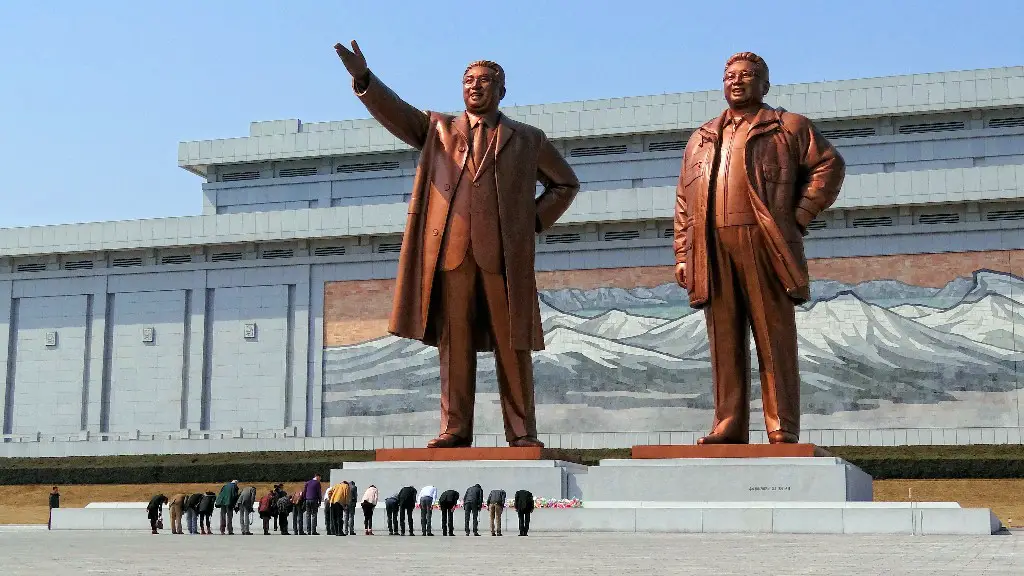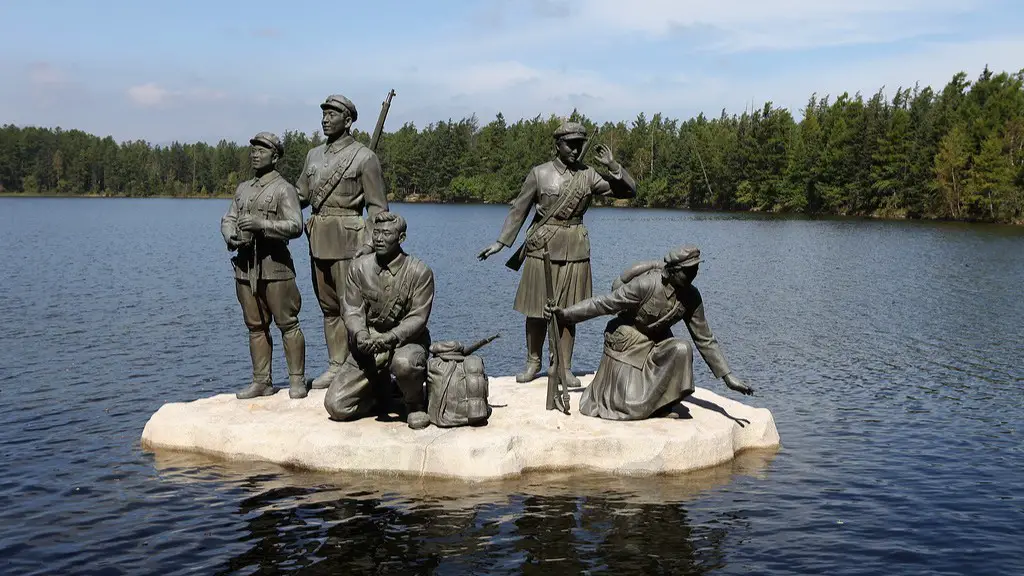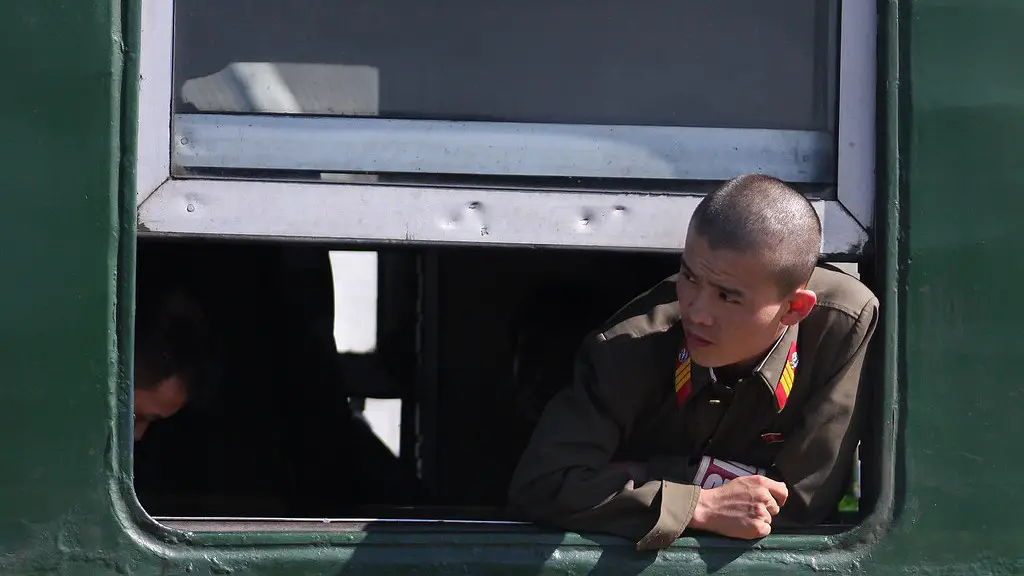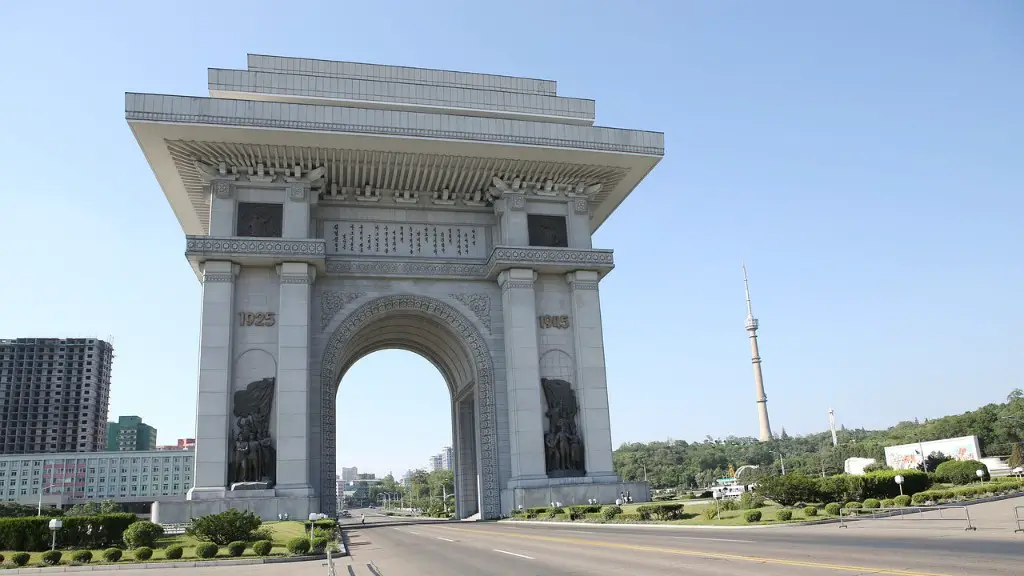The simple answer to why we don’t invade North Korea is that the political and geopolitical repercussions of such an event would be catastrophic. North Korea is one of the most secretive, oppressed and heavily fortified nations on earth, and is surrounded by military heavyweights China and South Korea. Though the U.S. could win a ground war with North Korea, that victory would come at a tremendous cost, both financially and in terms of human life.
The United Nations recently conducted a study estimating that a war with North Korea could cause the deaths of up to two million people, not including those in South Korea, China and the United States. This is due to the fact that North Korea has a large stockpile of nuclear weapons and hundreds of thousands of artillery pieces pointed at the South Korean capital of Seoul, which is only 27 miles away from the North Korean border.
Another major reason why we don’t invade North Korea is because of the distrust and animosity that exists between these two nations. Since the end of the Korean War in 1953, there has been little to no diplomatic relations between the two countries. North Korea has accused the U.S. of wanting to overthrow the North Korean government and has resisted any attempts at rapprochement. This animosity has only been exacerbated in recent years as North Korea has significantly advanced its nuclear capabilities.
In addition to the political implications, there are also economic reasons why we don’t invade North Korea. The North Korean economy is heavily reliant on aid, both in the form of food, fuel and other essential items, and it is estimated that any disruption to this aid would cause severe economic damage. This is particularly worrisome given that North Korea is already one of the poorest nations in the world. The effects of a war in the region could further destabilize this already fragile economy.
One possible solution could be dialogue between the two countries. It is widely accepted that the only way to resolve this conflict peacefully is through diplomacy, and the two countries have been engaging in small-scale talks since 2018. However, the trust and mutual understanding required for General Peace Talks to take place, remain elusive.
Impact on International Community
It is also important to consider the potential impact that a war with North Korea would have on the international community. Any military action would not only affect the U.S. and North Korea but could also cause upheaval in East-Asia and beyond.
China, for example, is a major economic partner for North Korea and has historically offered diplomatic and economic protection. China could very well be drawn into the conflict if the U.S. were to attack North Korea, and this could put additional strain on the already delicate relations between the two countries.
Moreover, any war in the region would likely prompt Russia’s involvement, as they have a long-standing strategic relationship with North Korea and share many common interests. This could lead to a direct conflict between Russia and the U.S., and destabilise much of the world.
Finally, any war with North Korea would be seen in the international community as an aggressive move by the U.S. and could even prompt other nations to question their commitment to the United Nations. This could lead to further global destabilisation and political tension.
Benefits of a Pacifist Approach
Given the risks and costs associated with a military attack on North Korea, it is much safer to pursue a pacifist stance towards the nation. Though it is a difficult and frustrating approach, it is the only way to prevent a nuclear conflict and it has seen some success. Relations between North and South Korea have thawed in recent years and there have been intermittent talks between the two nations.
The key to a successful strategy is continued dialogue between the countries. Though significant trust still needs to be established, small steps towards diplomacy can be made if the two sides continue to show patient and courage. There is still hope for peace and it is vital that the international community remain committed to finding a peaceful resolution to this conflict.
Sanctions and Diplomacy
Sanctions imposed by the international community have been a typical response to North Korea’s nuclear activities and have had some success in slowing down the nation’s weapons programs, but have also been criticised for their impact on ordinary North Korean citizens who often bear the brunt of these measures.
Though sanctions are important, it is equally important to focus on diplomatic efforts. The recent negotiations between North and South Korea is proof that a peaceful resolution is possible if the two sides can build trust, understanding and cooperation. The international community must continue to support such efforts.
The Humanitarian Crisis
Another major issue that must be addressed is the terrible human rights abuses in North Korea. Reports of torture, arbitrary detention and forced labour are widespread, and the nation is currently facing a severe humanitarian crisis due to natural disasters and international sanctions. Any attempt to resolve the situation must also address these issues.
The United Nations has consistently condemned the human rights violations committed by North Korea and has called on the international community to act. There is an urgent need for relief and aid in the country, and through concerted international efforts, the situation could potentially be improved.
Propaganda and Misinformation
Misinformation and propaganda have been a major problem in the North Korea-U.S. conflict. The North Korean government is notorious for its propaganda campaigns, which have served to undermine trust and create further tensions between the two countries. The U.S. government has also used disinformation and false news to fuel their agenda.
Given the existing distrust and animosity between the two countries, it is essential that the international community does not allow either side to distort the truth. It is especially important for journalists to ensure accuracy and report the facts from both sides of the conflict. Doing so is the first step in building trust between the two countries.
Important Considerations
War should always be a last resort, and a military attack on North Korea is not only dangerous but would also be ineffective. Any military intervention would be accompanied by serious economic and humanitarian costs and could potentially destabilise the East-Asian region.
Approaching North Korea with a focus on diplomacy and dialogue is thus far the best way to resolve this situation peacefully. It is essential that trust is built between the two countries and mutual understanding is established. Only then can a more permanent solution be reached.




